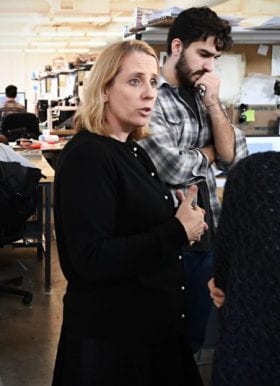
Catalina Freixas
Assistant Professor - Architecture and Urban Design
- Phone: 314-935-3360
- Email: freixas@nospam.wustl.edu
Catalina Freixas has more than fifteen years of experience teaching design studios and seminars. Freixas has focused her research on sustainable and resilient design, defined as design that can bounce back and adapt in response to shocks and stresses, while consciously promoting socio-economic and ecological justice for the present and future. Through her writing, she has redefined the phenomena of post-industrial cities as metamorphic cities, metropolises with the potential to take on transformation through eco-urbanism, which advocates a shift from conventional planning goals of economic and population growth to environmental sustainability and increased quality of life. Through her research, Freixas seeks to define a new set of metrics to evaluate shrinking cities through the lens of the “Three Pillars” of sustainability: Economic Development, Environmental Protection, and Social Equity. Freixas is a two-time recipient of grants through The Divided City: An Urban Humanities Initiative, funded by the Mellon Foundation; these grants have allowed her to research issues of segregation in post-industrial cities such as St. Louis, Cincinnati, and Detroit through the lens of sustainability, inclusion, and community resiliency. She is currently working on an edited volume of conversations and essays associated with her research on Segregation by Design in collaboration with Mark Abbott, professor of history at Harris-Stowe State University. Through her design pedagogy, Freixas explores the transformative potential of housing and mixed-income communities in addressing social disparity through increased access to education, health, public transportation, amenities, and green space. She continues to devote herself to promoting design resiliency and sustainability via her research, teaching, and practice.